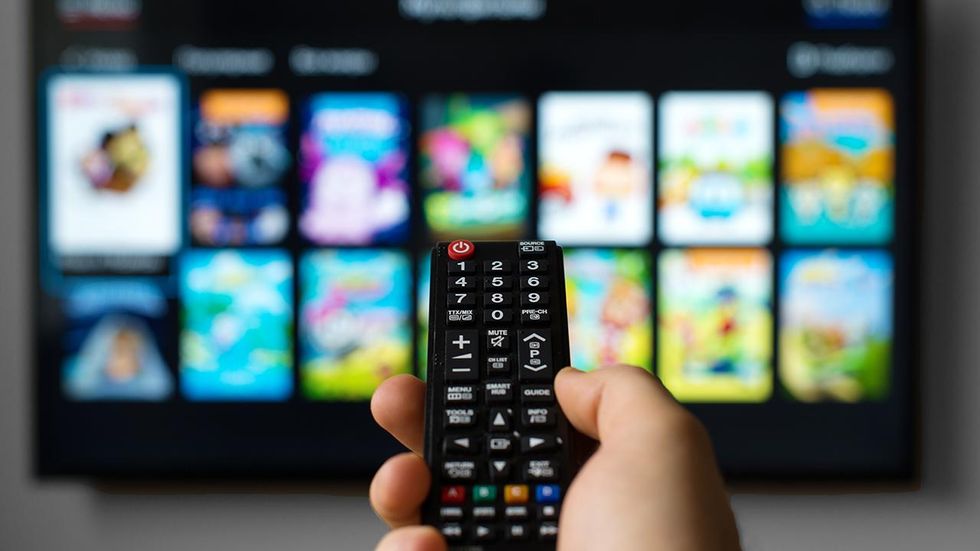
Smart TVs can pose a privacy threat by gathering data from users, sometimes without their knowledge, according to a new report.
(Dmitri Maruta/Getty Images)

Data-collection practices used by smartphones and Facebook are often viewed as the main threats to consumer privacy. But smart TVs are also vacuuming up data, sometimes without people fully understanding what is happening, according to the New York Times.
Data companies in recent years have started using new technology that can instantly identify what people watch on internet-connected TVs. In turn, the information is used to send targeted ads to other devices in their homes, according to the report.
That’s good news for advertisers. But some regulators and privacy advocates believe that companies are not being transparent about the practice, the Times noted.
One of the biggest companies that tracks viewer information is Samba TV. The company has collected viewing data from 13.5 million smart TVs in the U.S., the report stated. It has also “raised $40 million in venture funding from investors including Time Warner Cable, cable operator Liberty Global and billionaire Mark Cuban.”
Samba TV also has agreements with about a dozen companies, including Sony, Sharp, TCL and Philips, to install its software on certain TV models.
Here's how it works: When consumers set up their TVs, they’re asked to enable the Samba Interactive TV program. The system tells consumers it is designed to provide special offers by “cleverly recognizing onscreen content,” the Times reported. But it does not go into enough detail about how it works, critics say.
In 2016, Samba estimated that about 90 percent of those asked agreed to participate in the service.
Enabling the service allows Samba TV to track virtually everything that appears on the TV on a second-by-second basis, the Times stated. That includes network shows and ads, Netflix, HBO, and even video games. It goes as far as allowing advertisers to targets ads based on whether consumers watch liberal or conservative media outlets and which party’s presidential debates they have watched.
In its defense, Samba TV has said it follows privacy guidelines from the Federal Trade Commission. The company says it does not directly sell consumer data. Advertisers pay the company to direct ads to other devices in a home after their TV commercials are aired, or if one from a competing company is played.
Nothing about the Samba TV’s operating language is unclear, Bill Daddi, a Samba spokesman told the Times.
“Each version has clearly identified that we use technology to recognize what’s onscreen, to create benefit for the consumer as well as Samba, its partners and advertisers,” Daddi said.
The system operates somewhat like the internet, which allows companies to track online behavior and then sell targeted ads. The problem, critics say, is that people don’t expect their TVs to track them.
“It’s still not intuitive that the box-maker or the software embedded by the box-maker is going to be doing this,” Justin Brookman, director of consumer privacy and technology policy at the advocacy group Consumers Union and a former policy director at the Federal Trade Commission, told the Times. “I’d like to see companies do a better job of making that clear and explaining the value proposition to consumers.”
The practice can potentially impact millions of households. About 45 percent of homes had at least one smart TV by the end of 2017, according to the report.
Samba TV is based in San Francisco and has about 250 employees. Some of its main competitors are Inscape, which is the data arm of Vizio, and a startup company called Alphonso, the Times reported.
Some of the dynamics are cutthroat, according to the report. For example, Alphonso was sued by Samba for patent infringement. And Vizio paid $2.2 million in settlement claims to the Federal Trade Commission and the state of New Jersey for “collecting and selling viewing data from millions of smart TVs without the knowledge or consent of set owners,” the Times said.